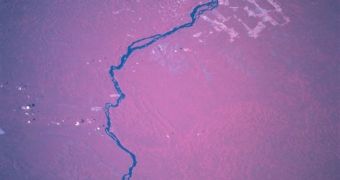The Brazilian government seems determined to build a number of dams on some of the largest tributaries of the Amazon river, the mightiest flow of water in the world. The first to enter the eyesight is, naturally, the Xingu River, the largest tributary of the Amazon and home to more than 600 species of fish, of which dozens are unique to this region. In addition, in places where farmers haven't cut it down, a large, green canopy stretches over the giant river, making it an ideal habitat for a large number of animals and birds.
But now, the Belo Monte project, envisioned by the Brazilian authorities, will flood more than 200 square miles of forest and could ruin these perfectly balanced ecosystems for good, environmentalists warn. Flooding the forest, along with the homes of more than 19,000 people, is bound to have negative impacts. Other than the animals living in the river, there are also countless species of crawlers, birds, mammals and whatnot living in the thick Amazonian forest, which holds one in ten of the world's known species.
In all, the South American nation plans to build more than a dozen dams, on virtually all of the main contributors to the Amazon basin. Needless to say, cutting down on the water supplies for the basin will have disastrous consequences on all the wildlife living around the rivers and would make for even more destruction of the largest rain forest in the world. The trees are already under increased attack from people expanding their farmlands and cattle ranches without proper authorization. Illegal logging is also a phenomenon that has gained strength over the last years, and which has authorities' resources stretched thin around the country.
In addition to the local impact, reducing the size of the rain forest also has extremely negative consequences on the global weather systems. Forests are not known as “the lungs of the planet” for nothing. Less trees mean less absorbed carbon dioxide and, with increasing pollution levels, the reduction in the number of these natural “vacuums” is the last thing we would want to do. It is estimated that the Amazon has lost 18 percent of its rain forests since the 1950s, all of them to human activities.

 14 DAY TRIAL //
14 DAY TRIAL //